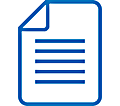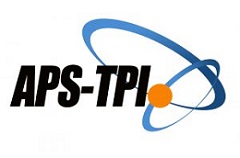Focus and Scope
Teknodika (p-ISSN: 1693-9107 & e-ISSN: 2656-6621) is peer reviewed journal of educational technology research which publishes reviews, analysis, dan empirical research on designing, developing, managing, utilizing and evaluating educational Technology to facilitating learning and improving performance in both formal and informal educational settings.
Teknodika is published by Master Program of Educational Technology Faculty of Teacher Training and Education, Universitas Sebelas Maret, Indonesia and publishes Twice a year on March and September. We call for international authors to contribute for priority, quick and highly disseminated publication. Our journal is member of crossreff by doi : 10.20961/teknodika.
Focus & scope includes:
1. Learning Media,
2. Learning Sources,
3. Distance Learning,
4. E-learning,
5. Online learning,
6. Learning Evaluation,
7. Design Instructional,
8. Learning Evaluation,
9. Learning with TPACK Approach (Technological Pedagogical Content Knowledge), and other relevant topics on Educational Technology fields.
Section Policies
Articles
Peer Review Process
Articles will be reviewed based on the criteria of how well: the title of the article represents the content of the article, the abstract and the foreword describe the essence of the article, the introduction reflects the importance of the problem being researched, the research methods and problem-solving approaches are described in detail, the data and data interpretation displayed are feasible (rational) and clearly, the discussion is in accordance with the essence of the article, tables and figures that clarify the contents of the article, discussion and analysis is relevant to the results of research, contributions to science, relevant references used, originality, and systematics of writing.
Teknodika uses a 'double blind review' process. That is, reviewers are not given the names and institutional affiliations of authors, and authors are not given the names of reviewers assigned to their articles. It is therefore important that authors remove all identifying information from articles including removing references in the text which will allow reviewers to identify authors, for example references to previously published authors. Names, institutional affiliations and references can be added if the article is accepted for publication.
Teknodika accepts manuscripts of articles that have never been published before. Accepted articles will be reviewed by at least two reviewers, and a board of editors. Authors are expected to improve the manuscript according to the review of the editorial team. The editor will process the article for publication according to the provisions. Editor's decision cannot be contested.
Teknodika has a two-stage review process. The first stage is an initial editorial review by one of the main editors, resulting in a decision to submit a peer review (stage 2) or an editorial rejection. The editorial review process usually takes about 1-2 weeks but can take longer in certain periods. If the article is forwarded to stage 2, Reviewer will be assigned to manage the review process. Here, two or more reviewer members will be assigned to review articles. The reviewers selected to review those articles just were selected based on their experience, expertise, and interests that align with the focus of the article.
Overall, the Editor shall inform you of the results of the review as soon as possible, hopefully in 6 weeks. The Editors’ decision is final and no correspondence can be entered into concerning manuscripts considered unsuitable for publication in this ournal. All correspondence, including notification of the Editors’ decision and requests for revisions, will be sent by email.
Open Access Policy
This journal provides immediate open access to its content on the principle that making research freely available to the public supports a greater global exchange of knowledge.
Archiving
This journal utilizes the LOCKSS system to create a distributed archiving system among participating libraries and permits those libraries to create permanent archives of the journal for purposes of preservation and restoration. More...
Article Processing Cost (APC)
Contributors in Teknodika will be charge the following author fees:
Article Submission: 0.00 (IDR)
Authors are required to pay an Article Submission Fee as part of the submission process to contribute to review costs.
Article Publication: 550.000 (IDR)
If this paper is accepted for publication, you will be asked to pay an Article Publication Fee to cover publications costs.
The Journal management has the right to change the article processing cost when it deems necessary.
The journal encourages diversity in authorship, non-Indonesian authors could publish in the journal for a huge sum of discount and prioir processes works flow.
Indonesian authors, please inquire to the journal editor for a discount or fee waiver.
The condition of waiver does not necessarily influence the decision of publication process. We do not want fees to prevent the publication of worthy work.
Publication Ethics
Ethical Guideline for Journal Publication
The publication of an article in a peer-reviewed is an essential building block in the development of a coherent and respected network of knowledge. It is a direct reflection of the quality of the work of the authors and the institutions that support them. Peer-reviewed articles support and embody the scientific method. It is therefore important to agree upon standards of expected ethical behavior for all parties involved in the act of publishing: the author, the journal editor, the peer reviewer, the publisher and the society.
Master Program of Educational Technology Sebelas Maret University as publisher of TEKNODIKA takes its duties of guardianship over all stages of publishing seriously and we recognize our ethical and other responsibilities. We are committed to ensuring that advertising, reprint or other commercial revenue has no impact or influence on editorial decisions.
Publication decisions
The editor of the TEKNODIKA is responsible for deciding which of the articles submitted to the journal should be published. The validation of the work in question and its importance to researchers and readers must always drive such decisions. The editors may be guided by the policies of the journal's editorial board and constrained by such legal requirements as shall then be in force regarding libel, copyright infringement and plagiarism. The editors may confer with other editors or reviewers in making this decision.
Fair play
An editor at any time evaluate manuscripts for their intellectual content without regard to race, gender, sexual orientation, religious belief, ethnic origin, citizenship, or political philosophy of the authors.
Confidentiality
The editor and any editorial staff must not disclose any information about a submitted manuscript to anyone other than the corresponding author, reviewers, potential reviewers, other editorial advisers, and the publisher, as appropriate.
Disclosure and conflicts of interest
Unpublished materials disclosed in a submitted manuscript must not be used in an editor's own research without the express written consent of the author.
Duties of Reviewers
Contribution to Editorial Decisions
Peer review assists the editor in making editorial decisions and through the editorial communications with the author may also assist the author in improving the paper.
Promptness
Any selected referee who feels unqualified to review the research reported in a manuscript or knows that its prompt review will be impossible should notify the editor and excuse himself from the review process.
Confidentiality
Any manuscripts received for review must be treated as confidential documents. They must not be shown to or discussed with others except as authorized by the editor.
Standards of Objectivity
Reviews should be conducted objectively. Personal criticism of the author is inappropriate. Referees should express their views clearly with supporting arguments.
Acknowledgement of Sources
Reviewers should identify relevant published work that has not been cited by the authors. Any statement that an observation, derivation, or argument had been previously reported should be accompanied by the relevant citation. A reviewer should also call to the editor's attention any substantial similarity or overlap between the manuscript under consideration and any other published paper of which they have personal knowledge.
Disclosure and Conflict of Interest
Privileged information or ideas obtained through peer review must be kept confidential and not used for personal advantage. Reviewers should not consider manuscripts in which they have conflicts of interest resulting from competitive, collaborative, or other relationships or connections with any of the authors, companies, or institutions connected to the papers.
Duties of Authors
Reporting standards
Authors of reports of original research should present an accurate account of the work performed as well as an objective discussion of its significance. Underlying data should be represented accurately in the paper. A paper should contain sufficient detail and references to permit others to replicate the work. Fraudulent or knowingly inaccurate statements constitute unethical behavior and are unacceptable.
Originality and Plagiarism
The authors should ensure that they have written entirely original works, and if the authors have used the work and/or words of others that this has been appropriately cited or quoted.
Multiple, Redundant or Concurrent Publication
An author should not in general publish manuscripts describing essentially the same research in more than one journal or primary publication. Submitting the same manuscript to more than one journal concurrently constitutes unethical publishing behaviour and is unacceptable.
Acknowledgement of Sources
Proper acknowledgment of the work of others must always be given. Authors should cite publications that have been influential in determining the nature of the reported work.
Authorship of the Paper
Authorship should be limited to those who have made a significant contribution to the conception, design, execution, or interpretation of the reported study. All those who have made significant contributions should be listed as co-authors. Where there are others who have participated in certain substantive aspects of the research project, they should be acknowledged or listed as contributors. The corresponding author should ensure that all appropriate co-authors and no inappropriate co-authors are included on the paper, and that all co-authors have seen and approved the final version of the paper and have agreed to its submission for publication.
Disclosure and Conflicts of Interest
All authors should disclose in their manuscript any financial or other substantive conflict of interest that might be construed to influence the results or interpretation of their manuscript. All sources of financial support for the project should be disclosed.
Fundamental errors in published works
When an author discovers a significant error or inaccuracy in his/her own published work, it is the author’s obligation to promptly notify the journal editor or publisher and cooperate with the editor to retract or correct the paper.
Publication Frequency
Teknodika is published twice a year, every March and September.
Plagiarsm Policy
- Plagiarism and self-plagiarism are not allowed;
- The authors should ensure that they have written entirely original works, and if the authors have used the work and/or words of others that this has been appropriately cited or quoted;
- An author should not in general publish manuscripts describing essentially the same research in more than one journal or primary publication. Submitting the same manuscript to more than one journal concurrently constitutes unethical publishing behavior and is unacceptable;
- Proper acknowledgment of the work of others must always be given. Authors should cite publications that have been influential in determining the nature of the reported work.
Screening for Plagiarism Works Flow:
The article that can be reviewed by editor board after completing the attachment of plagiarism checker and stated that article at least 80% is the origin. The following are the tools of checker:
- Plagiarism
- Duplicity-Checker
- Turnitin
- Plagiarism Checker
Plagiarism screening will be conducted by Editorial Board of Teknodika by using: Turnitn If it is found plagiarism indication (20% maximum), the editorial board will reject the manuscript immediately.





.png)













